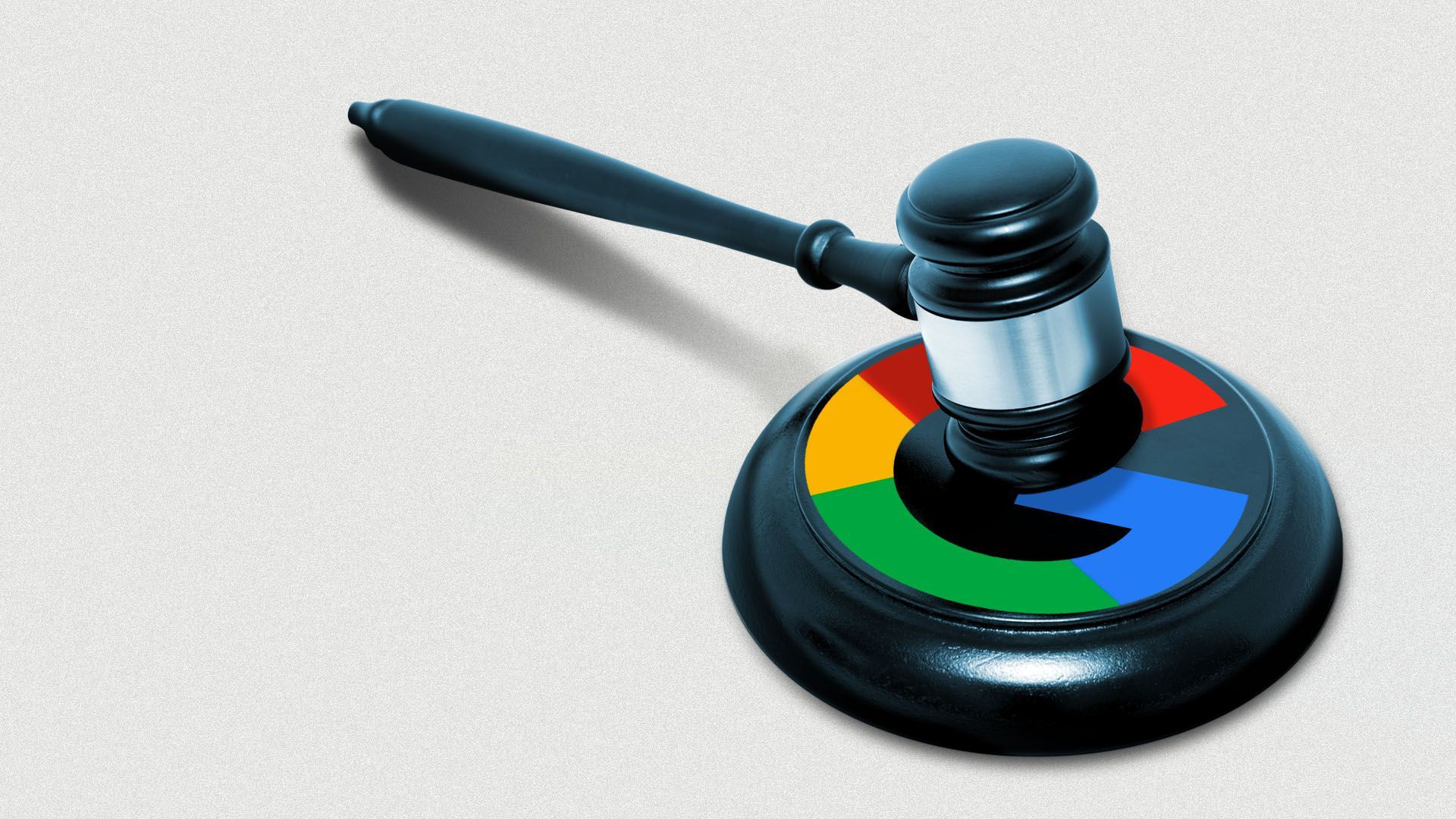State antitrust suits pile on Google
Add Axios as your preferred source to
see more of our stories on Google.

Illustration: Sarah Grillo/Axios
State attorneys-general have opened two new fronts in the legal war on Google: A Texas-led lawsuit targeted the company's advertising business Wednesday, and another suit Thursday led by Colorado and Nebraska is expected to take aim at Google's search practices.
Why it matters: The antitrust complaints, following an October suit by the Justice Department, set up the internet's dominant search and advertising powerhouse for what's likely to be years of conflict in multiple courts.
Driving the news: A bipartisan group of more than 30 state attorneys general is expected to sue Google today for illegally harming competition with its presentation of search results, according to a person familiar with the matter.
- The case is being led by Colorado and Nebraska, and will include allegations that Google unfairly demotes the results of specialized search providers like Yelp, TripAdvisor and Expedia whose core products compete with some of Google's own offerings.
- The complaint is also expected to accuse Google of attempting to expand its monopoly into emerging technology by requiring companies to only use its search services for voice assistants, the source told Axios.
Meanwhile, Texas Attorney General Ken Paxton led nine fellow Republican state attorneys general in a lawsuit Wednesday accusing Google of illegally hurting competition in the digital advertising market.
- The complaint claims Google struck an "anticompetitive agreement" with Facebook that involved Facebook curtailing its use of automated competitive bidding against Google for ad inventory in exchange for Google giving Facebook preferential treatment in a separate mobile advertising auction that it runs. The agreement, if true, may have benefited both firms' bottom lines.
- But the complaint is heavily redacted and Paxton's office declined to share more details.
Be smart: The claims around collusion with Facebook could be explosive — but much of that depends on what’s lurking behind the redactions.
- For instance, the suit makes reference to a 2015 agreement that Google struck to gain access to people’s end-to-end encrypted messages, photos and videos on Facebook-owned WhatsApp.
- But that may simply refer to users being able to opt in to automatically backing up WhatsApp content to Google Drive. (WhatsApp also didn’t roll out end-to-end encryption until 2016.)
- Facebook declined to comment.
The big picture: The Justice Department's lawsuit focused on Google's use of contracts to secure its search engine's place as the default on web browsers and mobile devices.
Between the lines: Teeing up multiple concurrent antitrust cases against Google that each focuses on a specific tranche of concerns lets enforcers take a divide-and-conquer approach, making each individual case more manageable and potentially forcing Google to defend itself before several judges at once.
- "I think it’s a common strategy to focus on one aspect of the conduct rather than throwing everything in," Public Knowledge competition policy director Charlotte Slaiman explained. "It takes a lot of work to get all of the attorneys up to speed to really engage with the technology and the complexity of the industry."
What's next: Parties in the federal government's suit are negotiating how that case will proceed. It's yet to be seen whether any of these cases will be consolidated.

